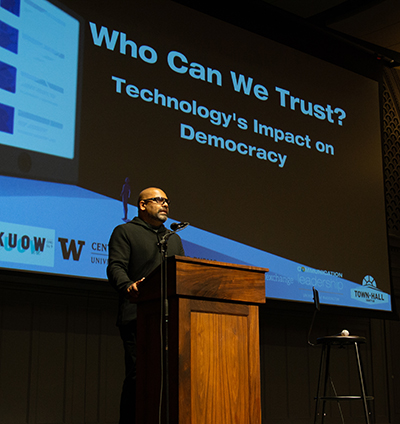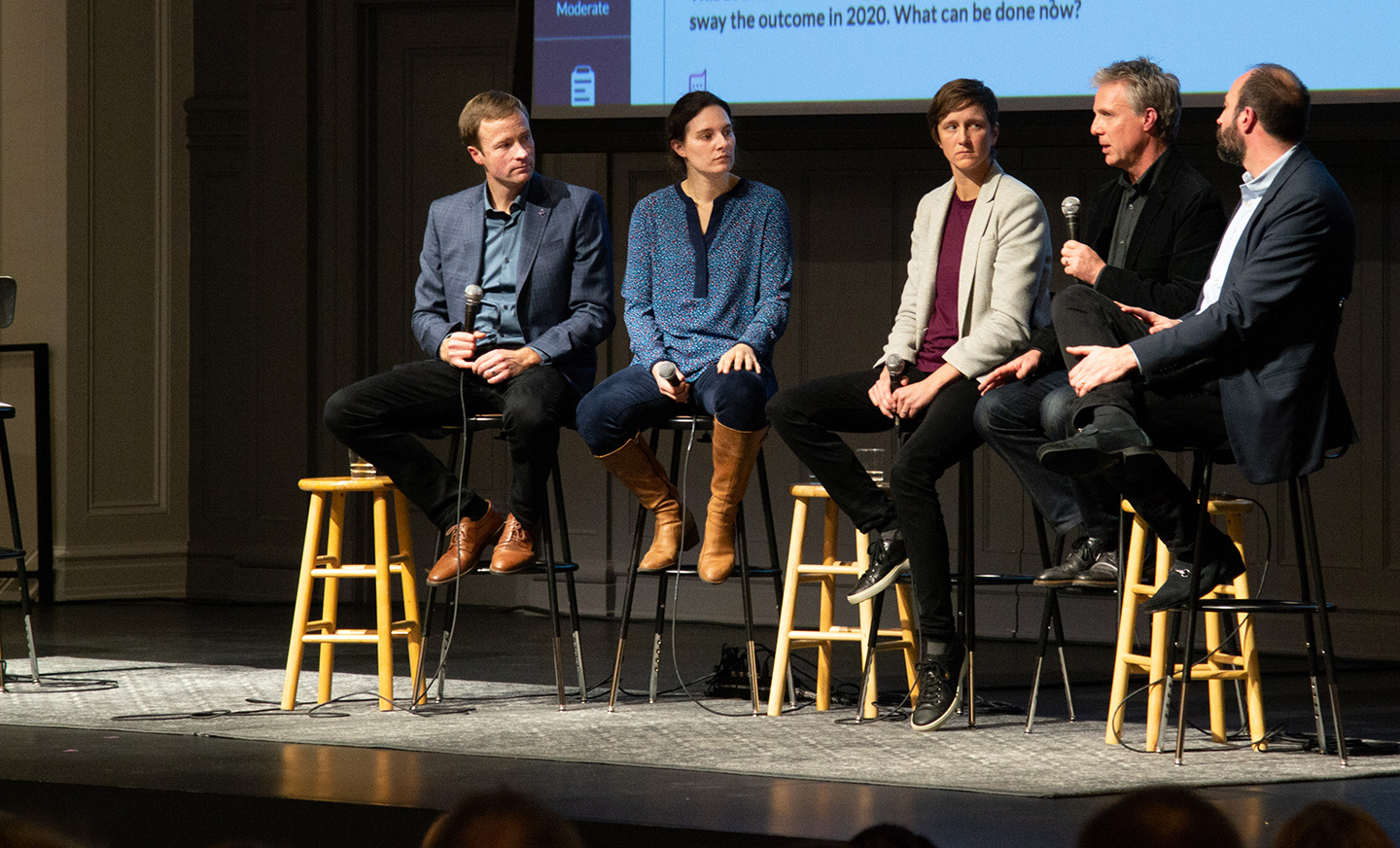The UW’s Center for an Informed Public is tackling some complex issues, but the theme of the new research center’s first major public event boiled down to a few simple words: “Think more, share less.”
That advice from CIP Director Jevin West drew one of the biggest reactions during “Who Can We Trust? Technology’s Impact on Democracy,” a panel discussion featuring the Center’s five lead researchers on Jan. 23 at Town Hall Seattle.
West and fellow researchers Emma Spiro, Kate Starbird, Chris Coward and Ryan Calo (pictured left-right at top) laid out their plans for how the Center will address topics such as the difference between misinformation and disinformation, the weaponization of technology to undermine democracy, the role of public libraries in engaging with communities, and legal concerns about restricting free speech.
The panelists then experimented with a crowdsourcing platform, Thoughtexchange, to gather and prioritize questions from the audience. Attendees used the tool to submit their questions and rank their favorites from other participants using a star system, with moderator Hanson Hosein, co-director of the UW’s Communication Leadership program, asking the panel the highest-rated questions.
The first question on the list came from a high school teacher who asked for the top couple of things they should be teaching their students on the topic. West, an associate professor at the Information School, noted that one thing he teaches students is the economic motives behind how information is fed to them.

“The platforms are there with one objective,” West said. “That objective is to stick you to the platform. They don’t care what you’re reading, they don’t care whether it’s misinformation, true information, disinformation. They want to keep you on the platform. By understanding that, I think the students begin to see the kinds of things that are pulling them in.”
West noted that the Center will share strategies with students at the upcoming MisinfoDay at the UW and continue to work with teens to develop curriculum.
Spiro, an assistant professor at the iSchool, responded to the question by echoing the theme of thinking more and sharing less: “To get into the routine habit of checking things before sharing things rather than just sharing things and then checking things, I think that’s one of the things that we can do.”
Another question that rose to the top of the queue asked what people can do to inoculate themselves against misinformation or disinformation online. Starbird, an associate professor in the Human Centered Design & Engineering department, advised people to examine how the strategic use of misinformation is affecting them emotionally, and what would motivate someone to want to provoke that.
“Disinformation doesn’t get us here,” she said, pointing to her head. Then she pointed to her belly. “Where it really draws us in is here. It goes through our emotions. It gets us through the gut, and it gets us to feel outrage or anger at somebody else. … What we tell people to do is to tune in to when information is affecting us there and to maybe step back and say, ‘Why does somebody want me to feel so mad right now?’”
Other questions reflected a degree of urgency among attendees. Several of the top-rated questions raised concerns about the 2020 elections, asked for workshops and training in schools, and requested recommendations for technology platforms to combat disinformation. The researchers are compiling the questions they received at the Seattle forum as well as future ones across the state.
The event was co-sponsored by the Center for an Informed Public, the UW Communication Leadership program, KUOW and Town Hall Seattle. Watch a full video below:
